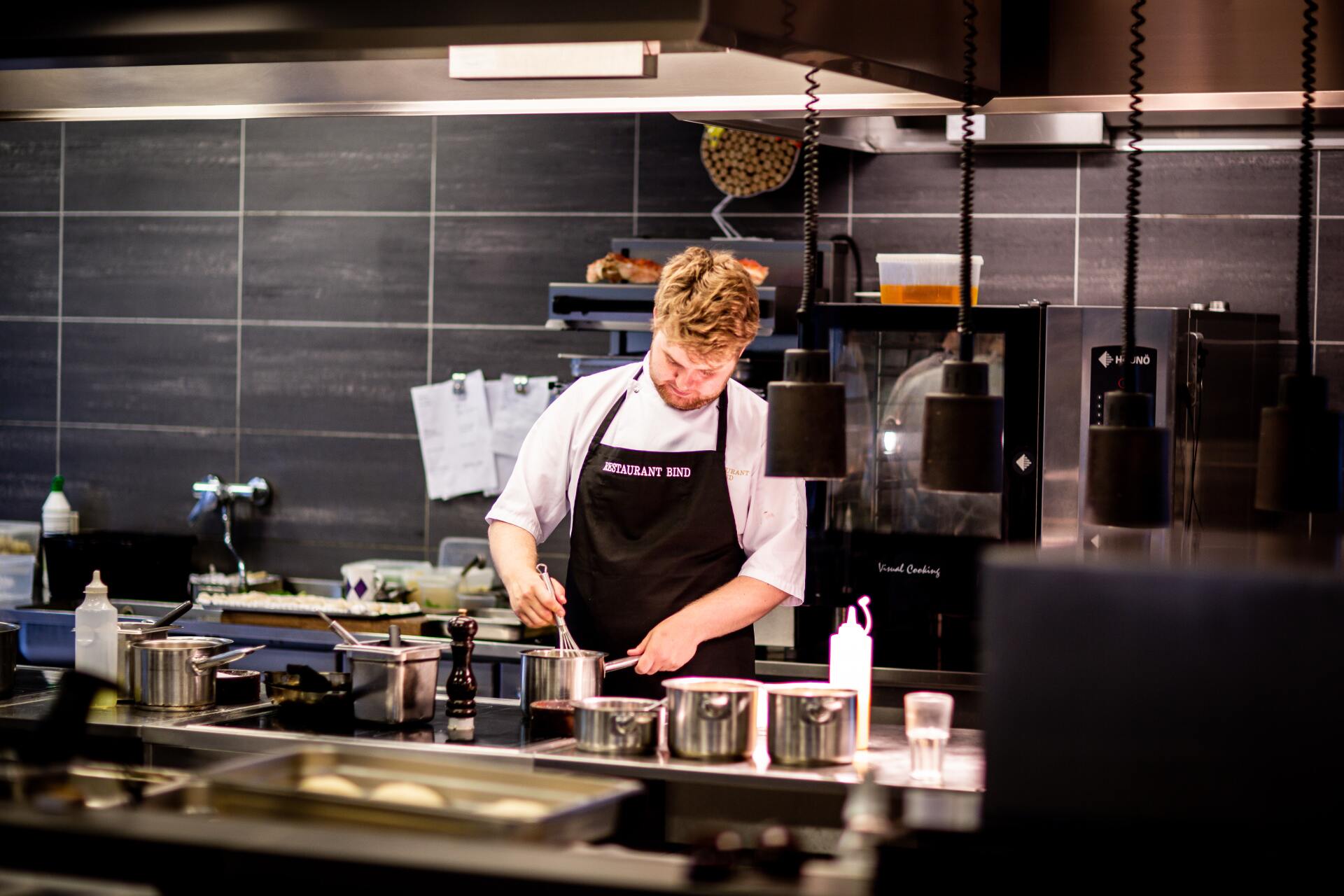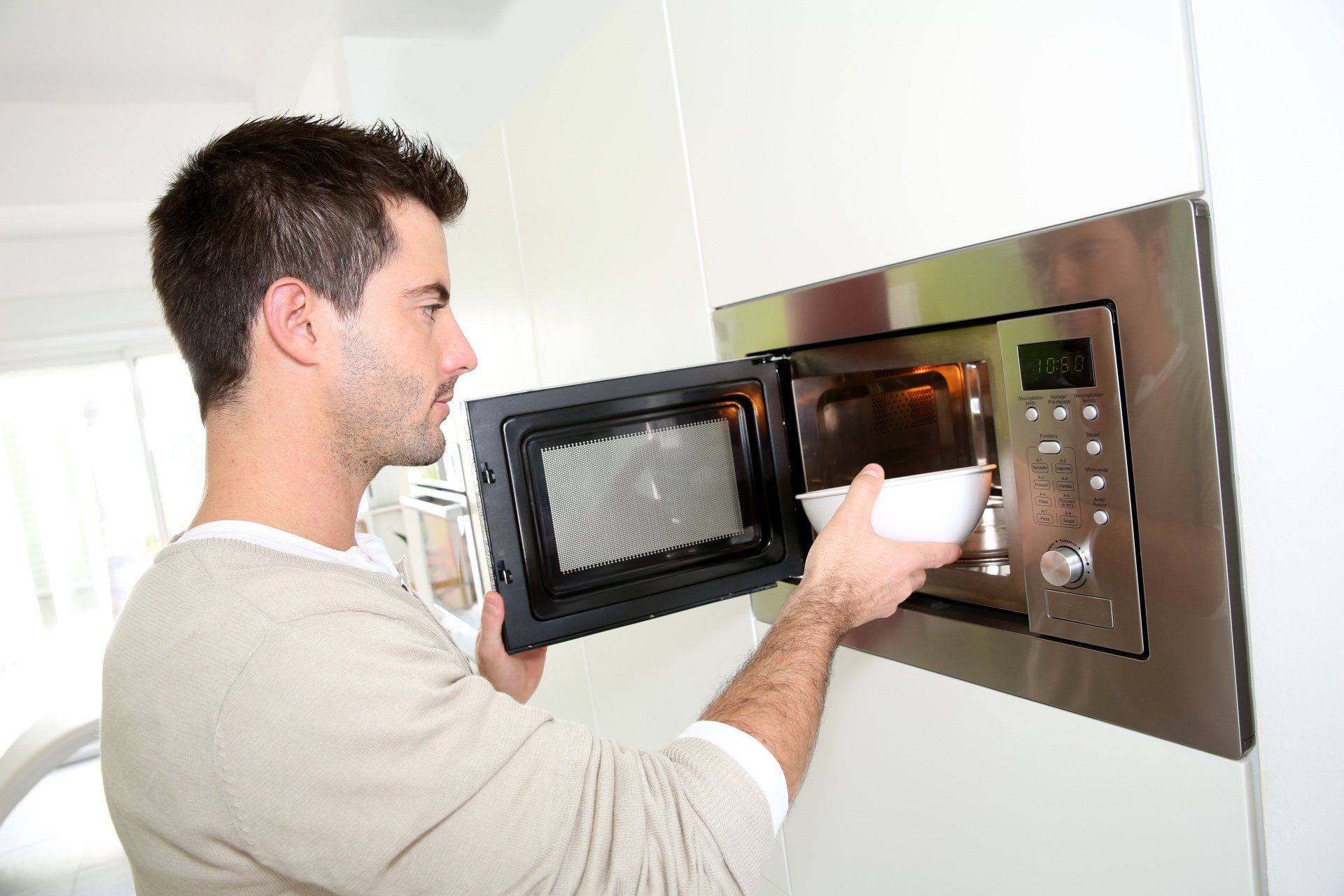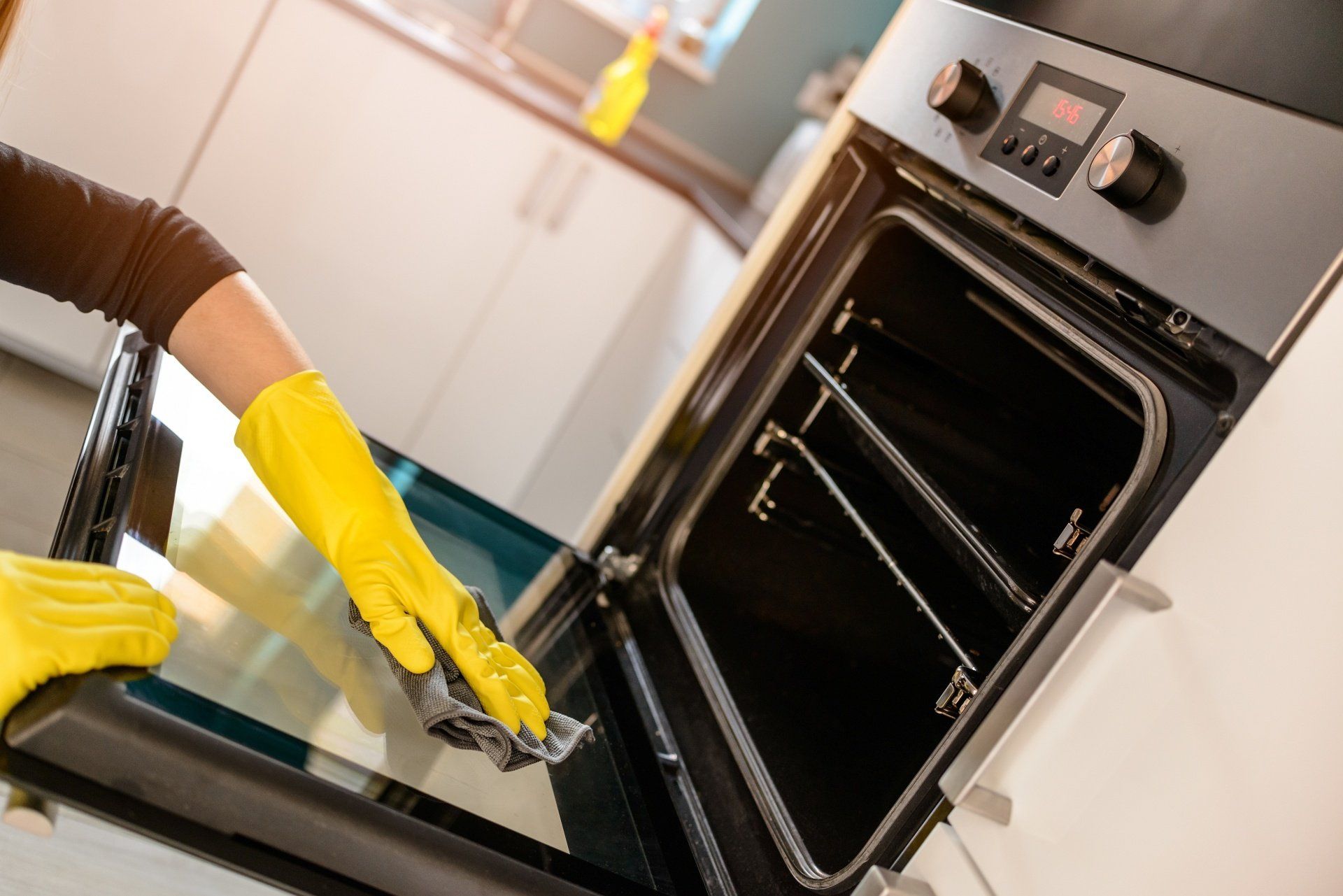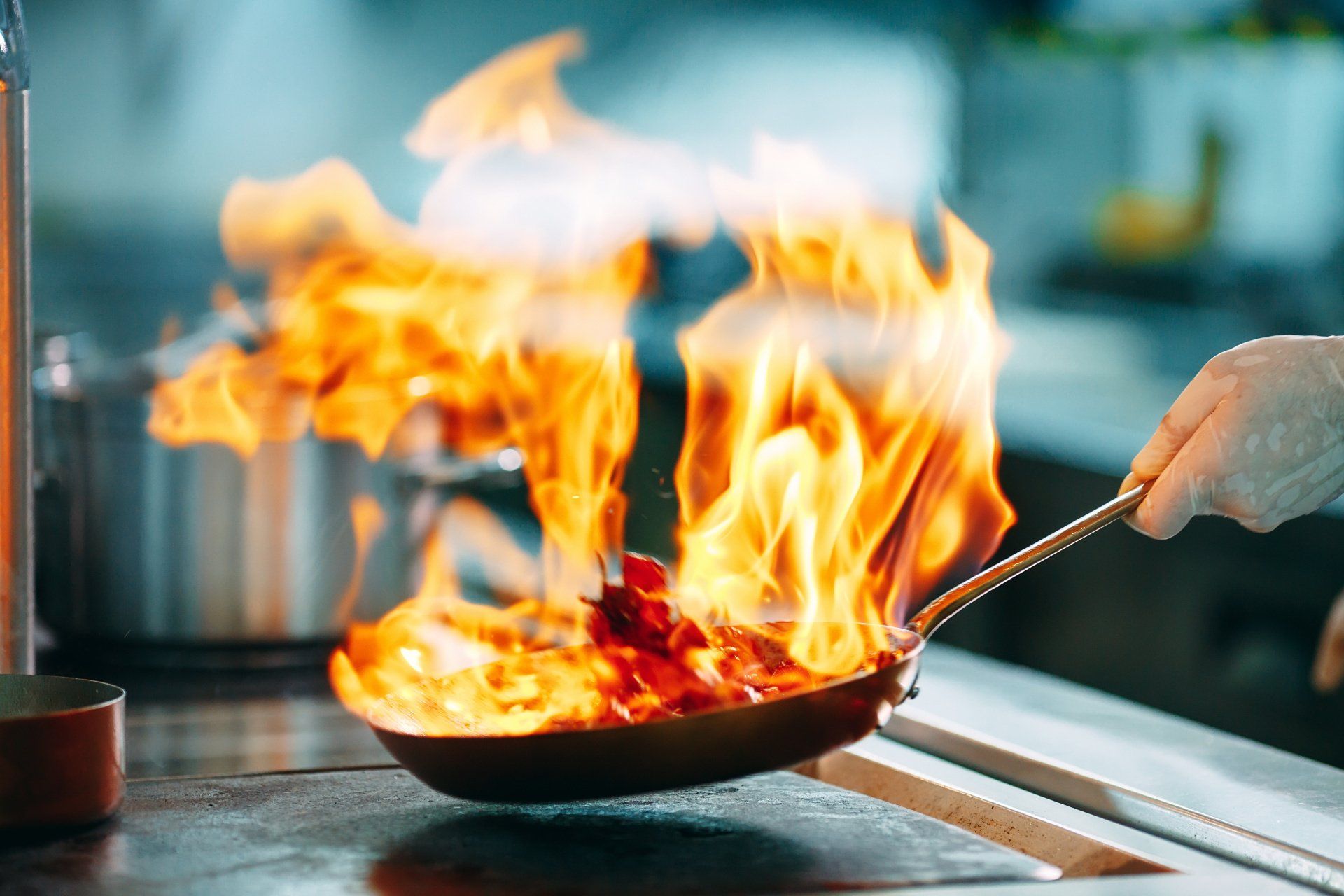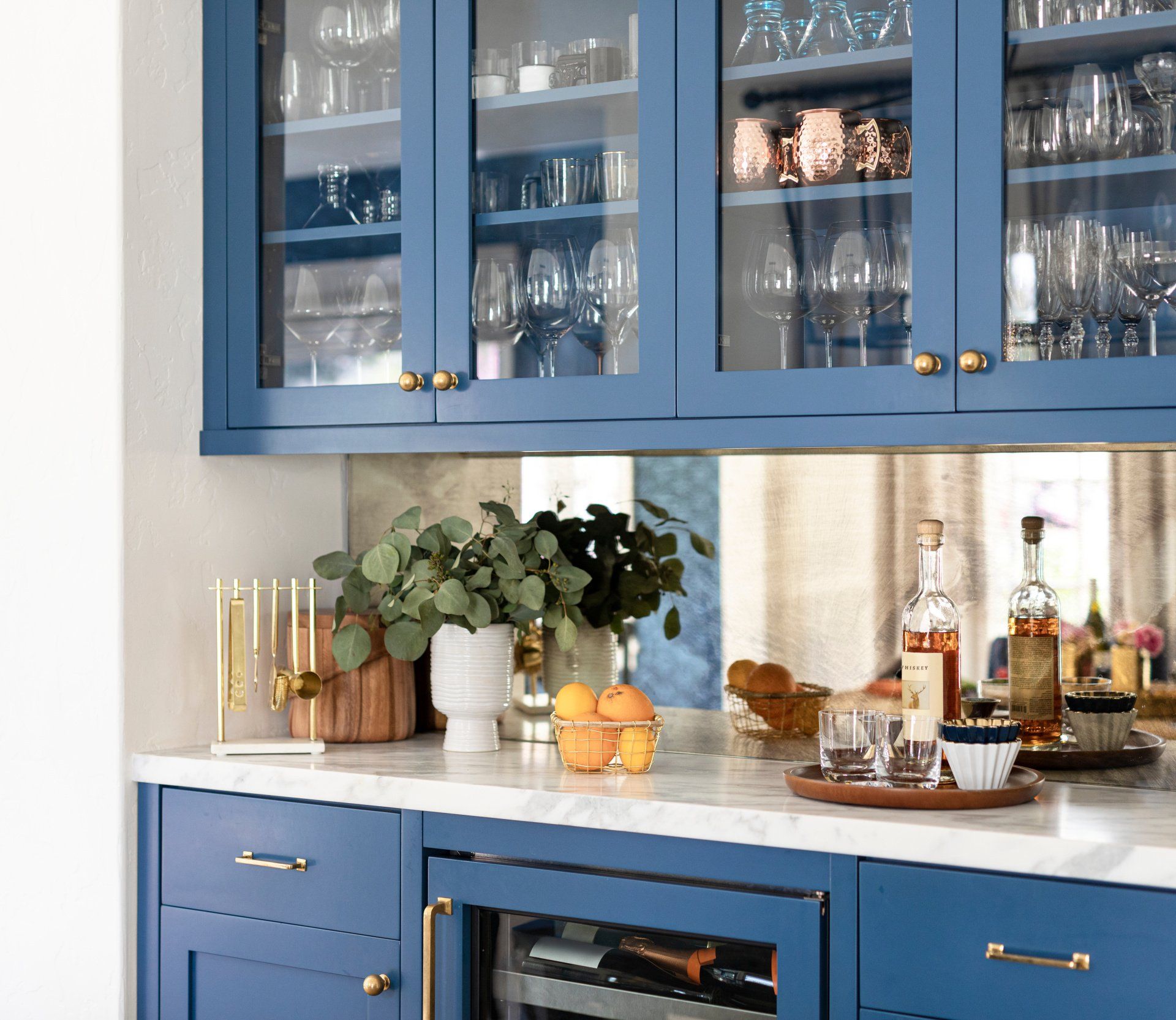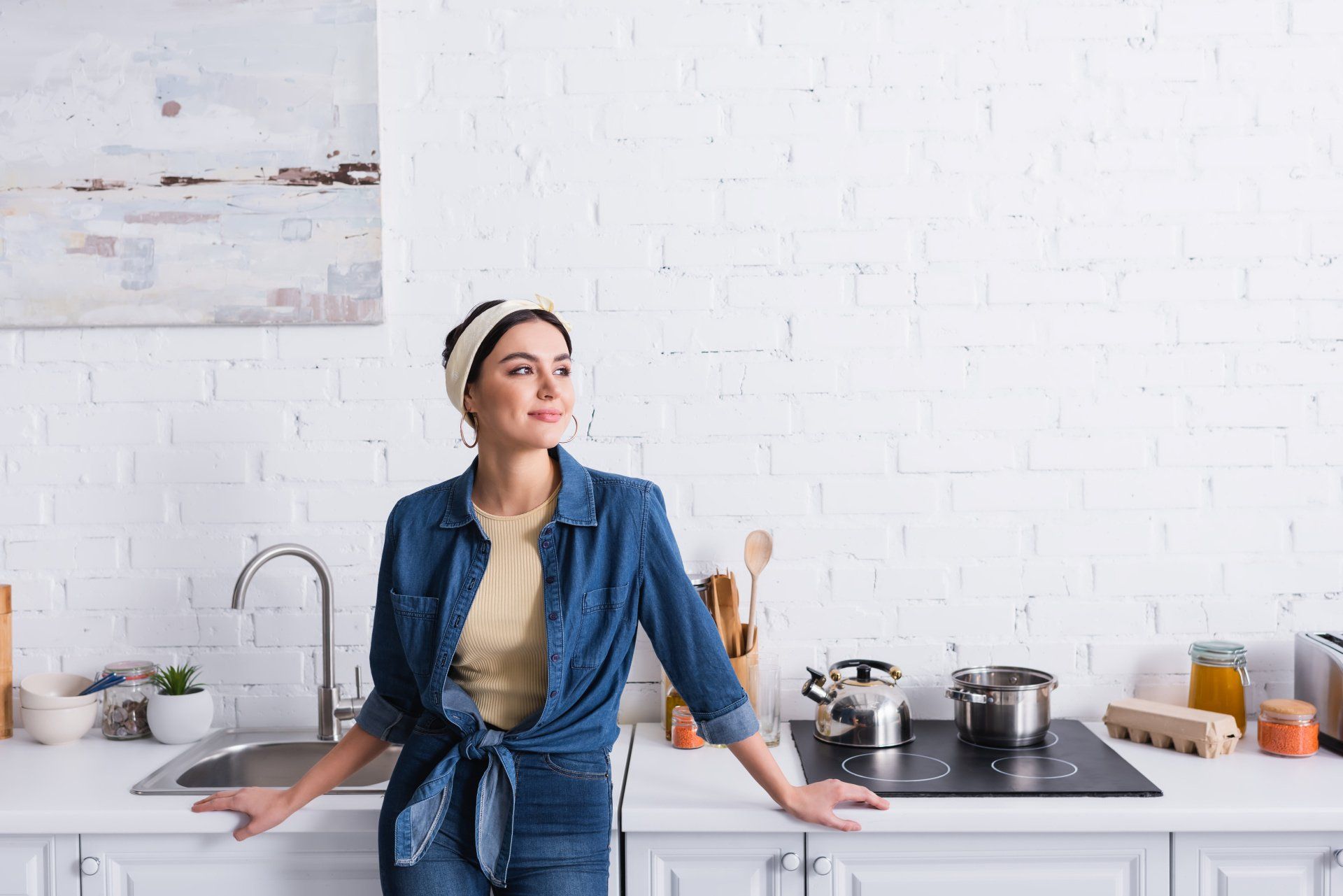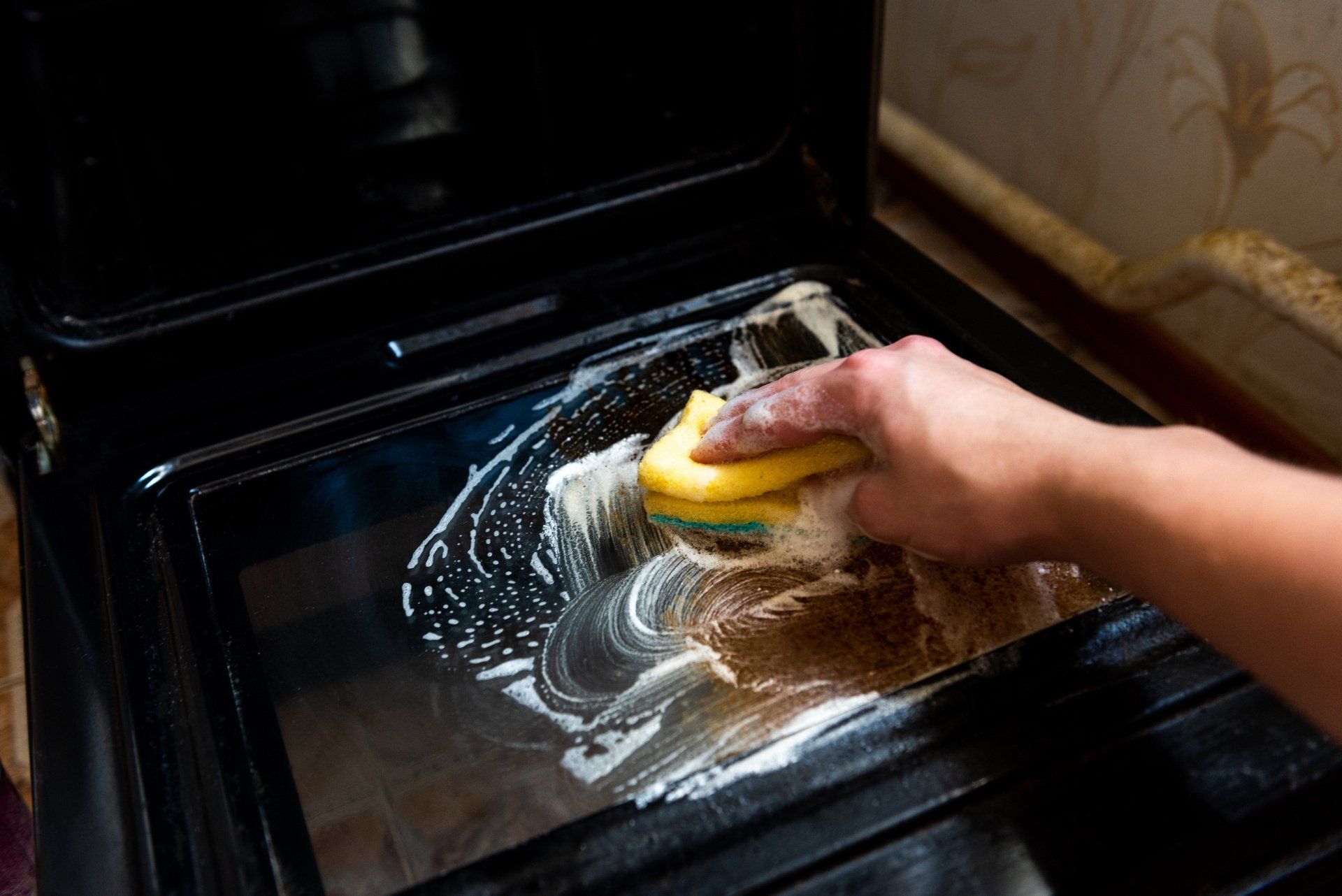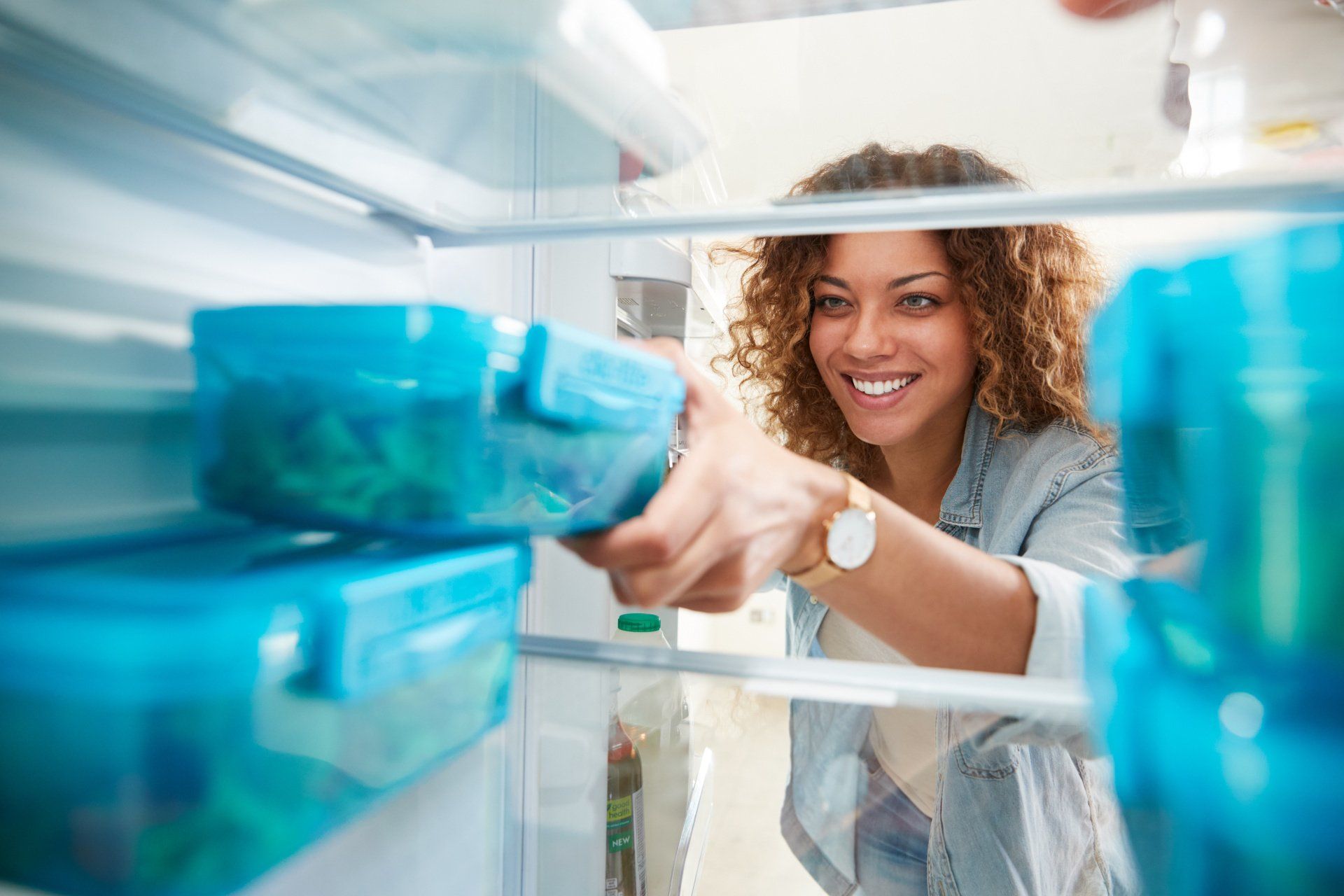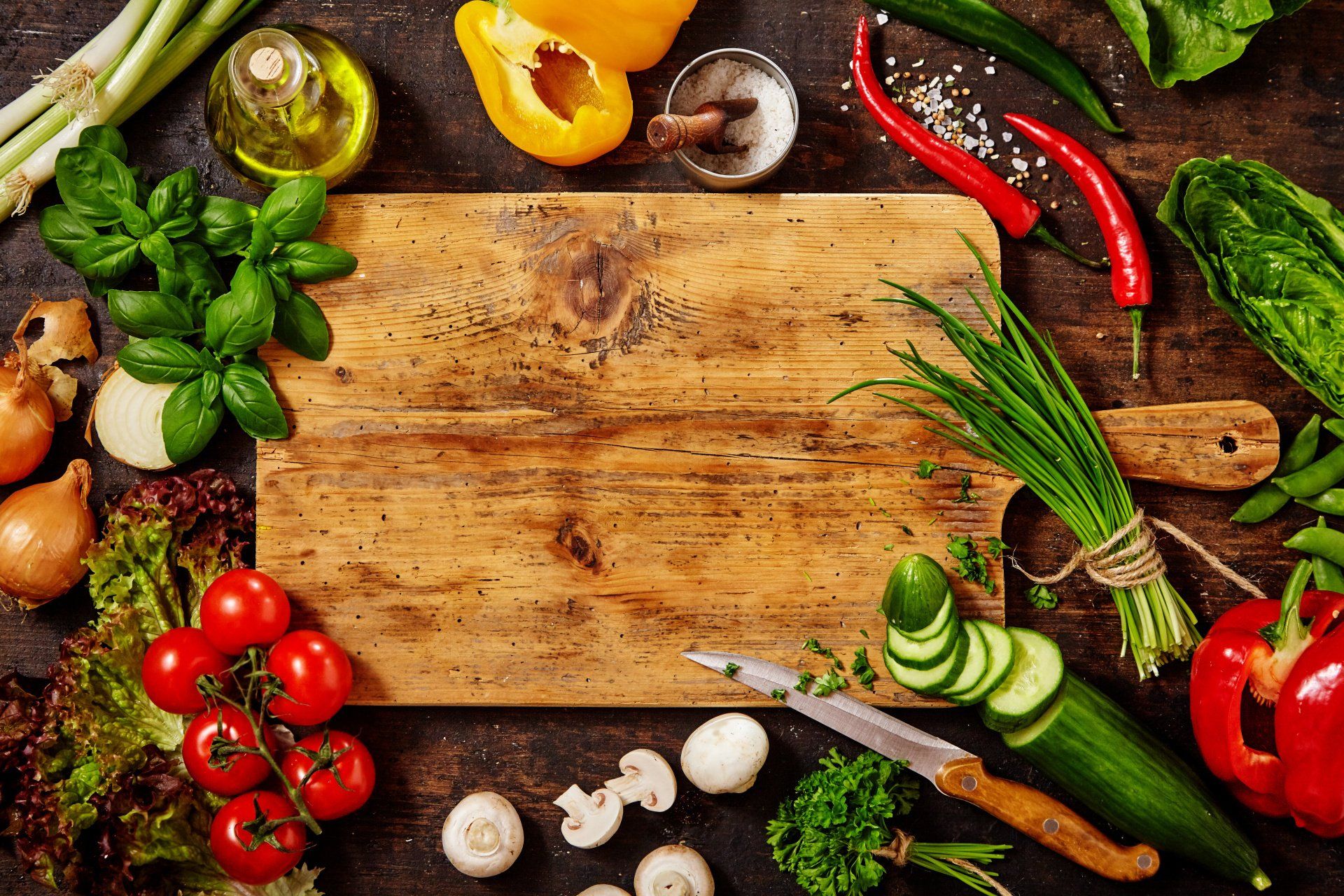8 Reasons Why You Should Keep a Clean Kitchen
The kitchen bin is overflowing, the sink smells like the inside of a dirty sock and the sponges lining your sink are so full of bacteria that any second they may stand up and start crawling away. Is it a big deal? Well, yes.
Keeping your kitchen (like the other rooms of your home) clean is important for a number of reasons. The main one being health and wellbeing - unfortunately with dirty kitchens comes the risk of illness and disease. But if you're not overly concerned with the biology side of things, think economy instead. Cleanliness can save you money - AND THAT'S ALWAYS GOOD. Then finally, it’s also politically and socially correct to be clean.
We have 8 reasons you should take time out of your busy schedule (whether it's just an hour out of the week) to clean the kitchen and find ways to keep it tidy. NOTE: We're not advocating a frontal assault on all things disorganised, jumbled or in need of a friendly wipe-down. A few crumbs in front of the toaster is nothing to get obsessive about. We will tell you how to maintain a clean kitchen and why it is necessary for better health and wellness - as well as help you save money and time, and send a positive message to your kids. Keep reading to learn more.
Prevent Food Borne Illness
One of the biggest concerns about cleanliness in the kitchen is food borne illness due to spoilage or cross-contamination. You know about safety precautions like using different cutting boards for meat and vegetables, always wash your hands after handling food especially raw meats and cleaning the sink and countertops regularly. These are just the basics.
According to the World Health Organisation (WHO), there are more than 200 diseases caused by contaminated food and a whopping estimated 600 million – almost 1 in 10 people in the world – fall ill after eating contaminated food and 420,000 die every year, resulting in the loss of 33 million healthy life years (DALYs). This is contamination from all sources, including food manufacturing, but that figure is still shocking.
Some of the biggest culprits introduced in food are Salmonella, Campylobacter, pathogenic E coli, and Listeria. There are others that can be transmitted to food from unwitting human carriers and then distributed to others in the household. They include: hepatitis A virus, Staphylococcus aureus, Salmonella, Shigella sonnei and rotavirus. Although food borne illnesses are much more likely to present severe health risks to young children, older adults and those who are already ill, even a mild case of food poisoning is an experience to avoid.
Here are just a few things to consider adding to your kitchen routine to reduce the risk of food borne illness:
- Always wash your hands before and after handling perishable foods (i.e foods likely to go bad quickly)
- Dispose of ALL spoiled food promptly. Never keep leftovers in your refrigerator longer than four days.
- Clean all the equipment you use for food prep like meat thermometers, measuring cups & spoons, can openers, sieves, colanders, blenders, wooden spoons etc. If it touches perishable foods, it should be cleaned
- If a food item looks or smells off in any way, dispose of it
- Keep all your household cleaners away from food prep areas
- Refrigerate perishable foods after no more than two hours at room temperature.
- Wash all cutting boards in hot, soapy water every time you use them, and discard cutting boards with deep scoring or gouges. For tips on cleaning your wood cutting boards, click HERE.
- Wash your hands after handling any raw meat or eggs.
- Always wash your hands after touching your nose, mouth or eyes.
Entertain Without Any Kitchen Related Embarrassment
You may prefer the idea of having the kitchen all to yourself when you’re having company over, but folks usually like to gravitate to the kitchen to see what’s going on. After all, it's the heart of the house and the place where all the action is. Don’t be surprised if your tidy living room is empty and your guests are laughing and having a great time standing within a couple of feet of the bin you just filled with gone off food. Sadly, because it's the busiest room in the house, it can also be the dirtiest room in your house. Before the sister-in-law you don't like starts telling the story of the day she discovered a loaf of bread covered with an inch-thick of mold, expect the unexpected by getting your kitchen in tiptop shape and keeping it that way.
Limit Household Use of Harsh Chemicals
Cleaning agents used in kitchens and bathrooms kill germs because they consist of a string of strong chemicals that get the job done, but can also leave residue behind. We as humans aren’t immune to some of the effects of strong anti-bacterial agents, and keeping your home clean using safe practices can be challenging. One thing is certain, though. Maintaining a regular cleaning regimen keeps bacteria under control, so there’s less of it to deal with. The chemicals you use, whether you decide to go green or employ a more aggressive, powerful option, will be available in reduced concentrations at any given time. If you’ve ever spent a weekend of heavy-duty cleaning only to have your home smell like you’re preparing a chemical stew, you know what we mean by this.
Extend the Life of Your Appliances
Every appliance in your kitchen - big or small - will work more efficiently when they’re clean. This includes the dishwasher, oven, hob, extractor fan etc. Efficiency means longer life. When a vent or filter is dirty, an appliance has to work harder to do its job. It will usually work hotter, too. That means a shorter useful life for than if you’d kept it clean. Will a little dust or grease destroy all of your countertop gadgets? No, but the effects are cumulative, and prolonged neglect will do more than make your appliances a little sticky and unpleasant to look at.
Manage Food More Efficiently
Kitchens are the key places for food storage and preparation, right? And having an effective and consistent food maintenance strategy is a good idea. Foods like milk and eggs turn relatively quickly, and keeping your fridge clean and organised will help you keep track of food stores so you can use them before they spoil. When the inside of your fridge looks like new things are growing in it, don’t expect to be able to monitor or control what goes on in there. Decaying food will produce odours and bacteria that can spoil other foods, and when you leave spills in place, you risk creating problems with cross-contamination.
The cupboards are another spot to keep an eye on. Although canned foods may be relatively indestructible, things like baking powder, spices and other products should be monitored. If you know the freshness date on that loaf of bread is about to elapse, you may be able to turn it into breadcrumbs before it turns green and furry. Also, it's important to note that spilled, spoiling and neglected food can breed a number of different bacterias and encourage insect invaders. Food is perishable, and using it to its best advantage requires regular cleaning and maintenance.
Take the Hassle out of Kitchen Prep
Cooking is a lot easier with everything out of the way/ in the right places. Just think about it, it’s dinnertime and you’re exhausted. This morning’s breakfast dishes are on the side where you plan to chop onions, and the sink is full of salad debris that never made it into the bin. In order to get a meal together, you’ll have to clean the kitchen first. While you’re cursing whoever left the sponge full of god knows what, you’re thinking of ways to cut a few seconds from dinner prep. If this sounds familiar, you’ll probably acknowledge that cleaning when you’re tired or in a hurry isn’t good cleaning (it's just about passable). If you’re struggling with sticky countertops, raise your hand. The truth is, hasty cleaning probably takes more time in the long run, too (annoyingly). One good worktop cleaning — you know, the kind where you take everything off the side and clean everything one at a time — may take 15-20 minutes. Having to drag a cloth around your countertop appliances, the mail basket, and the bread box twice a day for a hurried cleaning could pile up a lot more minutes than you think. If you get into the habit of cleaning regularly, you’ll save a few steps and keep your frustration meter out of the red zone. BONUS!
Be Safer
Just by clearing the clutter that gathers in your kitchen can avoid a number of different accidents happening.
NOTE: Cleanliness isn’t just an aesthetic concern. It’s very much about safety, too. Drips on the floor from last night’s drink spillage could cause someone to slip over, and that oil slick on the stove from taco Tuesday could start a grease fire. The kitchen is one spot where water, high heat, electricity and sharp objects all come into close proximity, and the best way to control this potentially dangerous environment is by keeping it as clean and organised as possible. Of course, no one plans on starting a fire in the kitchen, or slipping on water spills or dropping the blade end of a greasy knife on a toe - but these things happen, especially in unclean and disorganised environments.
Set a Good Example for Your Children
The fact is that whatever you’re doing — or not doing — is making an impression on the people around you, especially your children. yes, they won’t love you any less if you never clean out the the kitchen cupboards, but they may adopt your less desirable cleaning habits later in life. Cleanliness may not have the almost religious importance previous generations of housekeepers attributed to it, but it’s a good habit to teach your children by example. That's it, lead by example - and make the process as fun as possible. Teach your children how to clean and organise, whilst also bringing team work and competition to the process. Not only is this good for the family in terms of learning good cleaning habits, but it also speeds up the overall cleaning process - that's a win, win situation if you ask us.
